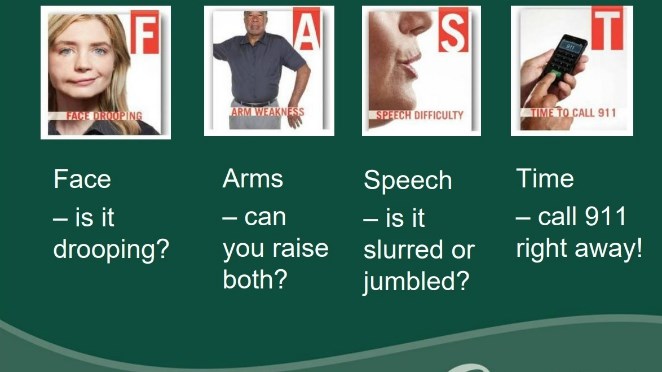Of the 689 people in Greater Sudbury who had a stroke in 2017, 296 either drove themselves to hospital, or had someone drive them there.
That's worrisome, says Melissa Roney, the city's acting deputy chief of emergency services, because anyone who suspects they are having a stroke should call an ambulance and get treatment as soon as possible.
"Fast action towards treatment is critical," Roney told members of the emergency services committee Wednesday. “We have a saying: time is brain.”
What that means is the longer it takes someone with a stroke to get help, the more likely serious brain damage will occur.
“When blood can’t reach an area of the brain, the cells in that area die. The surrounding brain tissue is at risk, but can be salvaged if immediate treatments can help restore blood flow to those cells.”
It can be the difference between a full recovery, and lifelong impairment or even death, she said.
"A fast response is exactly what counts,” Roney said. "People often arrive at hospital too late."
To get the message out on how to tell if someone is having a stroke, and the need to get help immediately, emergency services in Sudbury are launching the FAST Action to Create More Stroke Survivors campaign. It involves putting decals on paramedic and ambulance vehicles detailing signs of stroke, and what you should do.
FAST is an acronym for detecting a stroke and what people should do in an emergency: Face, Arm, Speech and Time. Is the person's face drooping? Can they raise both arms? Is their speech slurred or nonsensical? If these signs are present, Roney said it's time to call 911.
When someone has a stroke, they experience a sudden loss of brain function resulting from lack of blood flow due to bleeding or blood clot. It's the leading cause of adult acquired disability in Canada, and the third leading cause of death. More than 62,000 people in Canada have a stroke each year, and 17 per cent die as a result.
The program has support from Dr. Padma Puranam, the medical director of the Northeastern Ontario Stroke Network and HSN Stroke Program.
"I am pleased that Sudbury Paramedic Services has taken this opportunity, provided by the Heart and Stroke Foundation, to offer the public another means to learn that stroke is an emergency and people must act FAST,” Puranam said in a statement. “Every minute counts.”
The FAST decals will be displayed on paramedic vehicles until 2020.
